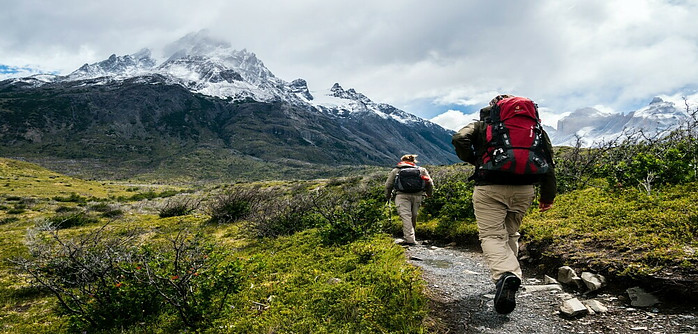**How to Stay Hydrated on a Long Hike**
 Introduction
Introduction
Hiking is a fantastic outdoor activity that allows you to connect with nature, explore new landscapes, and challenge yourself physically. However, one aspect of hiking that should never be underestimated is the importance of staying hydrated. In this blog post, we will explore the significance of hydration during long hikes and provide essential strategies to ensure you stay properly hydrated on the trail.
**Understanding the Importance of Hydration on the Trail**
Before delving into hydration strategies, it’s crucial to understand why staying hydrated on a long hike is so important:
* **Risks of Dehydration:** Dehydration occurs when your body loses more fluids than it takes in. On a long hike, this can lead to serious health issues, including heat exhaustion, heatstroke, and even life-threatening situations.
* **Physical Performance:** Hydration is closely linked to physical performance. Proper hydration ensures your muscles function optimally, your energy levels remain stable, and your endurance is maintained.
* **Safety:** Staying hydrated is a matter of safety, especially in remote or challenging terrains. It can help you make clear decisions and respond effectively to unexpected situations.
* **Recognizing Dehydration:** Be aware of the signs and symptoms of dehydration, which may include dark urine, dry mouth, dizziness, fatigue, and confusion. Ignoring these warning signs can lead to serious consequences.
**Essential Hydration Strategies Before and During Your Hike**
To stay hydrated during your long hike, it’s essential to plan ahead and adopt proper hydration strategies:
* **Pre-Hike Hydration:** Hydration should start well before you hit the trail. Drink water the day before your hike to ensure you start well-hydrated. Avoid excessive alcohol or caffeine consumption, as they can contribute to dehydration.
* **Assess Your Needs:** Assess your personal hydration needs based on the duration and intensity of your hike. Hotter weather, higher altitudes, and strenuous terrain will require increased fluid intake.
* **Hydration Gear:** Choose the right hydration gear that suits your preferences. Options include water bottles and hydration packs (hydration reservoirs with hoses). Ensure they are easy to access and use during your hike.
* **Timed Sips and Drinking to Thirst:** Rather than waiting until you feel thirsty, take regular sips of water throughout your hike. Drinking to thirst is a reliable way to maintain hydration.
* **Electrolytes:** Understand the role of electrolytes (sodium, potassium, magnesium) in maintaining fluid balance. Consider carrying electrolyte tablets or sports drinks to replenish lost electrolytes during prolonged hikes.
**Integrating Hydration with Overall Hiking Wellness**
Hydration doesn’t exist in isolation; it’s closely tied to other aspects of your hiking experience:
* **Balanced Nutrition:** Along with drinking water, ensure you consume proper nutrition to sustain energy levels. Carry high-energy snacks like nuts, dried fruits, and energy bars.
* **Route Planning:** Plan your hiking route with water sources in mind. Research and mark water refill points on your map or GPS device.
* **Natural Sources of Hydration:** Learn to recognize edible plants and fruits along the trail that can provide natural hydration. However, only consume them if you are certain of their safety.
* **Purification Methods:** Be educated about water purification methods if you intend to drink from natural sources like streams or lakes. Filters, purifying tablets, or boiling can make water safe to drink.
* **Weather Adaptation:** Adjust your hydration strategy based on weather conditions. Hot and humid conditions will require more frequent water intake, while cooler weather may necessitate less.
Conclusion
In conclusion, staying properly hydrated is a non-negotiable aspect of a successful and safe long hike. Neglecting hydration can lead to discomfort, reduced performance, and health risks. By understanding the importance of hydration, planning ahead, and adopting effective strategies, you can enjoy your hikes to the fullest while keeping yourself safe and well-hydrated. Remember that every hike is unique, so be prepared to adjust your hydration approach based on the specific conditions you encounter.

